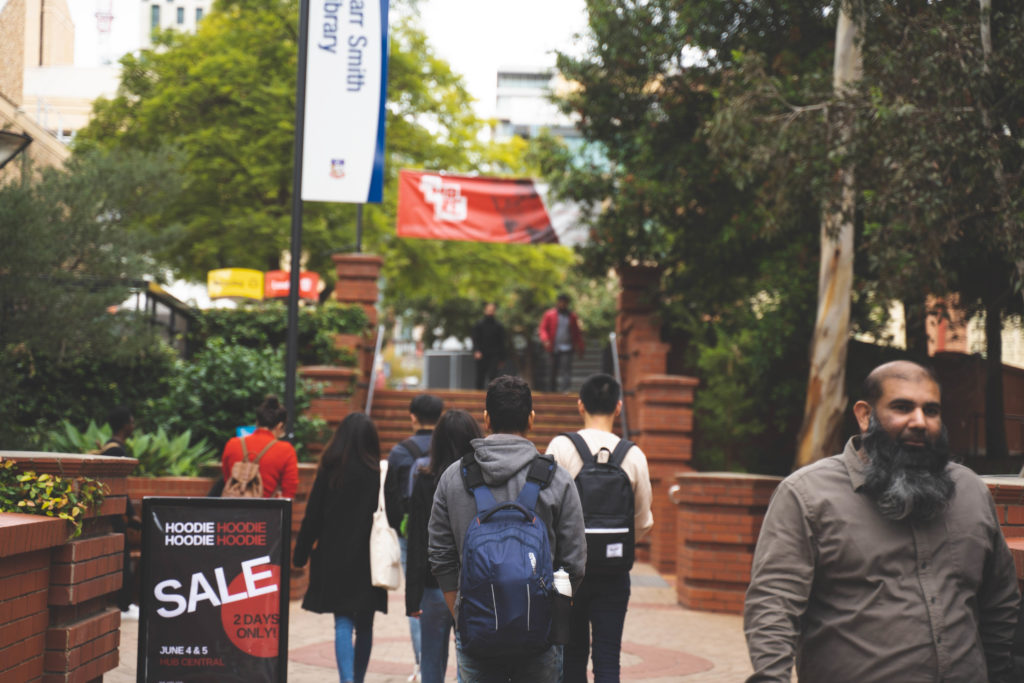The Graduate Outcomes Survey 2020 (GOS) has revealed the ten Australian universities with the highest full-time graduate employment rates. Interestingly, the survey has also revealed that undergraduate employment has actually risen since 2017.
The GOS looks at the employment outcomes of graduates three years after they’ve completed their degree. In order to calculate its results, the report analysed the employment outcomes of those who responded to the 2017 GOS. The finds showed that, overall, the graduate employment rate for undergraduates jumped up 17.1% since 2017, with the overall graduate employment rate rising from 73% in 2017 to 90.1% in 2020 – which is great news for soon-to-be graduates!
Which Australian universities have the highest graduate employment rates?
Overall, the 2020 Graduate Outcomes Survey concluded that every Australian university included in the report recorded an impressive employment rate of over 81%. And while some universities may have higher full-time graduate employment rates than others, the report does suggest that this isn’t necessarily due to the teaching quality or reputation of the university. Things like different labour markets in a particular state or territory, the courses offered by a university, or the make-up of the student population can affect outcomes.
According to the results of the 2020 GOS, the Australian universities with the highest full-time undergraduate employment are:
- Australian Catholic University – 95.5%
- The Australian National University – 95.2%
- University of Canberra – 94.1%
- Charles Sturt University – 93.9%
- James Cook University – 93.8%
- University of New South Wales – 93.6%
- Charles Darwin University – 93.0%
- Bond University – 92.3%
- Federation University Australia – 92.3%
- University of Technology Sydney – 92.2%
With regard to full-time employment after receiving a postgraduate degree, the universities are ranked as follows:
- Australian Catholic University – 98.6%
- Federation University Australia – 98.2%
- The University of Notre Dame Australia – 98.2%
- La Trobe University – 97.9%
- Macquarie University – 97.3%
- Queensland University of Technology – 97.2%
- The Australian National University – 96.8%
- Monash University – 96.1%
- University of New South Wales – 96.0%
- Central Queensland University – 95.9%
Graduate median salary
In addition to examining the full-time employment rates of Australian universities, the GOS examines the median salary of recent graduates. For undergraduates, the survey showed that graduates who had found full-time work saw their median annual salary increase from $60,000 to $75,000 between 2017 and 2020.
The universities with the highest median salaries of recent graduates in full-time employment are as follows:
- The University of Notre Dame Australia – $83,300
- University of Southern Queensland – $83,000
- Central Queensland University – $80,200
- James Cook University – $80,000
- University of New South Wales – $80,000
- University of New England – $79,000
- Charles Darwin University – $78,500
- Charles Sturt University – $78,300
- Curtin University – $78,000
- The Australian National University – $78,000
COVID-19 and graduate employment
The increase in graduate employment across the board is welcome news to many new and current students across Australia, but the report does touch on the impact of COVID-19. While the full-time graduate employment rate had risen to 90.1% prior to 23 March 2020, “nominal or crude estimates” based on responses after this date show a reduction in the labour market, with the full-time employment rate falling to 88.6 percent for responses after 23 March 2020.
Although the GOS states that it does generally take longer for graduates to find employment after an economic downturn, the survey mentions that it is far too early to determine the impact of COVID-19 on the graduate job market in a statistical sense.





